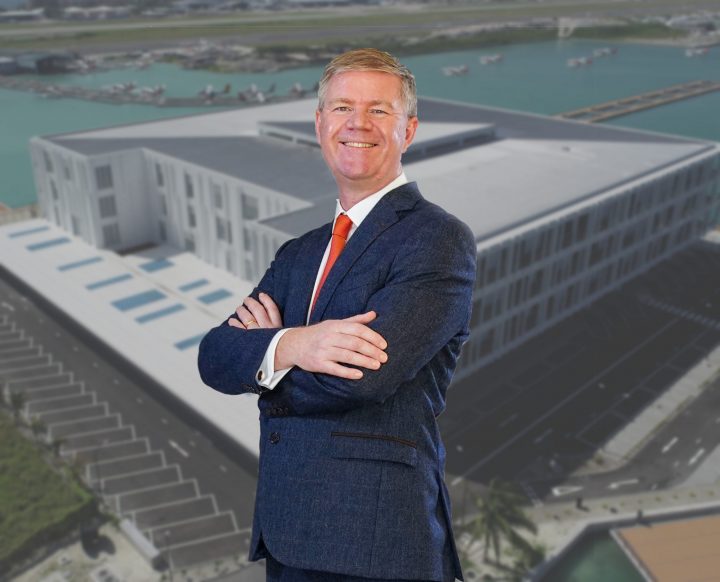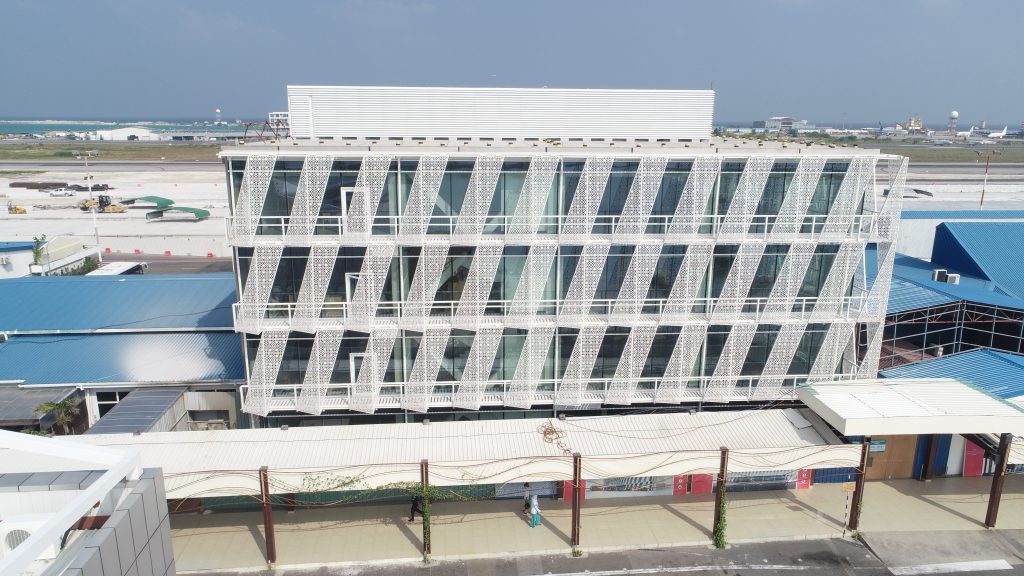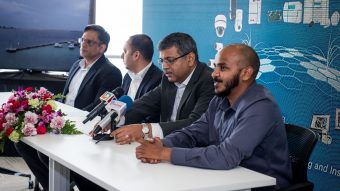
Exclusive: Gordon Andrew Stewart, CEO and MD, MACL
Gordon Andrew Stewart was appointed CEO and MD of Maldives Airports Company Limited (MACL), a 100% government limited liability company vested with the mandate to oversee the development and operations of Velana International Airport (VIA). Despite taking the leadership role amidst the COVID-19 Pandemic and arriving in the country soon after the borders opened in July 2020, VIA and its management have received recognition as having showcased one of the safest airports in the world.
VIA celebrated its 55th anniversary in April this year. The Maldives first and main international gateway, VIA remains pivotal in the trajectory of the country as a tourism destination.
We spoke to Stewart earlier this year about how he and the team at MACL rose to the challenge.
1. How do you define the magnitude of the Covid-19 crisis on VIA and the overall operations of MACL?
Initially it was devastating. We were experiencing a gradual decline in our international flights from February 2020 onwards and a complete shutdown from 27 March 2020 till July 15th 2020. There were no commercial inbounds flights and we had operations only for essential flights like repatriation, cargo and emergencies. However after border reopened, we have recovered gradually and steadily since then, culminating this December 2020 and January 2021 where we saw tremendous growth during the winter peak holiday season where we achieved passenger numbers of just over 50% of our 2019 passenger numbers. To put this in context in August 2020 we were running at 5% of our 2019 numbers comparatively. Globally, airports are running at around 20 – 30% of 2019 with many fairing much worse.
2. What are the key strategies adopted by MACL in managing the Covid-19 crisis as it continues to unfold?
During January 2020, we collaborated with health authorities in understanding the depth of the pandemic and how we could be ready. By February 2020 we took precautionary measures such as disinfecting, ensure social distancing, awareness session and temperature screening. Equally, we declared our airport capacity as to how many passengers we can manage during operations. Apart from this, we carried out a passenger flow simulation exercise at the departures and arrival terminal before opening for commercial operations. The first strategy upon re-opening was to demonstrate to our customers that we were as safe as we could be. During the lockdown period our staff were working extremely hard to obtain that the airport is safe from COVID-19. To review the level of safety measures taken at our Airport we applied for ACI’s Health Accreditation Certificate and were awarded the Certificate. This was validation by the global Airports Association body (ACI- Airport Council International) that we were a safe Airport to travel through. We were the second Airport in the Asia Pacific region attained the safety accreditation.
After the safety accreditation, our focus was to find markets where passengers were able to travel from and re-enter their home country easily. We realised the countries that did not operate quarantine restrictions for their nationals to re-enter were the best to target. Likewise, Russia and Ukraine, proved very fruitful for us where the authorities mirrored the Maldives Policy of re-entry allowed with a negative PCR test. This has proved to be our best market so far.
3. What are the most prioritized investment strategies for MACL, and has there been any changes to the strategic priorities for MACL due to the pandemic?
We are still following our long term investment strategy which is to invest in both capacity improvements to our Airport and also an improved quality of service we offerings. This year we plan to open the New Sea Plane Terminal – the world’s biggest. It is a Terminal that will significantly improve the quality of service that our discerning customers expect from the Maldives. We will also open our new Code F Runway which will give us much needed additional capacity for our peak hour traffic which is typically early mornings. Opening of new VIP / CIP Terminal is also scheduled to open during 2021, which will dramatically improve our service offering for this customer segment and will allow a consistency of service for the Maldives high end tourists to enjoy.
4. What is your strategy to recoup the revenue losses and improve overall financial health of MACL?
Like all other airport operators in the world right now, MACL also has been hit by cash flow issues. No airport globally has been spared this issue. This means that the focus has to be on three areas; protect our revenue, which we are doing by targeting viable markets. Reduce and manage our costs, which we have been actively managing. Finally, cash flow and treasury activities, which we are vastly active managing to preserve positive cash flow.
5. How crucial do you think is the role of technology in the current situation dealing with a global pandemic, and what are your plans in deployment of technology for airport operations?
It plays a role in reducing touchpoints for passengers. However, the biggest role in dealing with the global pandemic is to observe the three basic principles where possible: Wear a mask, maintain social distancing and wash or sanitize your hands regularly. These were the areas we focused on to attain our ACI Health Accreditation.
6. What infrastructure development plans do you have for VIA in the next five years?
I mentioned three earlier – new VIP/CIP Terminal, new Seaplane Terminal and new Runway. However, we also have many other supporting infrastructure projects we are working on this year; new Aprons to give us more aircraft parking capacity, a new Fire Station, a new Cargo Terminal, a new Fuel Farm and many other supporting projects. We are effectively rebuilding our entire Airport. The scale of change and complexity we are dealing with is huge and all to be delivered in very difficult pandemic conditions. To top it all off we are also building a New Passenger Terminal, currently scheduled for 2023, that will give us a 7.25million passengers a year capacity Terminal. This will also significantly improve our capacity and quality of service offering for our passengers, providing them an experience which is more consistent with the Maldivian way.
7. What additional joint efforts can be done by the government, airlines and other players in the aviation sector to enhance the post-pandemic recovery process and increase the traffic volume of the airport?
I believe we need to keep doing what we are doing. We are blessed in the Maldives that MACL, the Tourism Sector, Airlines and the Government all share the same focus and determination to accelerate recovery, as it is in all our joint interests to do so. I am impressed with the level of cooperation that exists between us all. As an example, working closely with the Ministry of Health and other agencies, we are currently in the process of setting up a vaccination center in the airport that will be run by MACL medical staff, to administer the vaccine to all airport staff. Not just MACL staff, all airport staff; Government agencies, our front line Food and Beverage staff, check in agents and so on. Our aim is to be one of the first airports in the world to have all its staff fully vaccinated. This will provide further assurance to tourists and passengers that VIA and the Maldives is one of the safest airport and tourist destinations in the world right now.
8. How optimistic are you about the future of the VIA, and the overall outlook of the aviation sector?
I am optimistic. With the rollout of the vaccine, we will recover. What we are uncertain about is the timescales that the recovery will take. Globally the aviation sector is forecasting full recovery to 2019 levels by 2023 or 2024. Can we recover faster in the Maldives? Possibly in the short term due to our unique geography and concept of one resort one island. However, over the long term as more of our competing destinations come on board this may affect our speed of recovery. Regardless though of speed of recovery we just need to keep doing what we are doing. Keep working our strategy; deliver our new assets to improve our capacity and service offering, manage our finances carefully and grow and develop our markets where opportunities present. The sun is gradually rising on aviation in the Maldives, to once again reveal our ‘Sunny Side of Life’ to the world.






